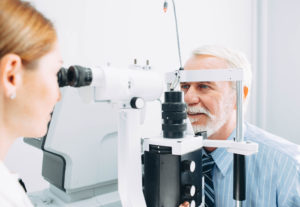
About two years ago, I started wearing glasses full time. At the outset, it was a bit of an adjustment. I’ll admit that I hate wearing them, and back when they were first prescribed, I’d be looking for any excuse to take them off my face.
One day, my wife’s sister told me that my eyes probably just needed a break—maybe take the glasses off for a while so my eyes regulate. This wasn’t the first time I’d heard this, and I’d also noticed that my vision seemed even worse than it had been before I started wearing my glasses. Maybe the glasses were actually weakening my vision?
Yeah, right.
It turns out that this was bad advice. Your eyes don’t need “a rest” from glasses or contacts, and not wearing them certainly won’t improve vision. Not wearing your corrective lenses will cause further strain on your eyes and tire them out even faster.
If you do feel the need to remove your glasses because your eyes need a “rest,” doing so will not result in worse vision or eye disease. However, it is likely a signal that you need to step away from whatever you’re doing. When eyes feel strained, it’s generally a result of fatigue, so if you’ve been looking at a computer, reading, or focusing on something else for an extended period, take some time to avert your eyes and let them catch a little rest.
Another popular myth about eye health is that diet can prevent certain sight-related issues like near-sightedness, far-sightedness, or problems that may require glasses. Although vitamin A, C, and E-rich foods have some major benefits to eye health, they don’t influence basic vision problems. Instead, antioxidant-rich foods might help prevent the development of eye diseases like cataracts and age-related macular degeneration. If you need glasses, a nutritious diet won’t change that!
Taking care of your eyes is actually pretty easy. If you’re getting headaches or find your eyes getting tired, take a break from what you’re looking at. If vision is changing, it could be time for glasses or a new prescription, so visit your eye doctor. Lastly, to prevent age-related vision troubles, eat plenty of colorful fruits and vegetables.